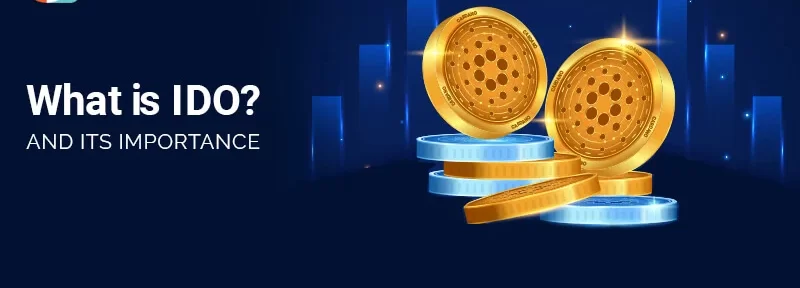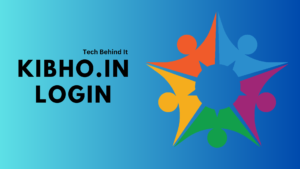What Is an IDO? Initial DEX Offering Explained
An IDO, short for Initial DEX Offering, is a method for cryptocurrency projects to introduce their own token or coin through a decentralized exchange. It has gained popularity as a successor to ICOs, providing a way for projects to raise funds independently for their expansion and development.
In this guide, we will explore the concept of IDOs in the crypto world, various types of token offerings, the process of participating in an IDO, and other relevant information. Let’s delve into the details and gain a better understanding of this crowdfunding technique.
What is a token offering?
In the world of cryptocurrencies, there are various methods to gather funds. Some popular fundraising approaches include Initial Coin Offerings (ICO), Initial Exchange Offerings (IEO), Initial Game Offerings (IGO), Initial DEX Offerings (IDO), and Initial Farm Offerings (IFOs).
The funds acquired through these models play a crucial role in supporting the growth and development of the respective projects. They are utilized for activities like research and development, marketing efforts, as well as the introduction of innovative products and services. These fundraising models serve as avenues for projects to secure the necessary resources for their expansion plans.
Different kinds of token offerings
ICO
Before launching an ICO, the project team releases a document called a whitepaper, which outlines the project’s concept and details. This allows potential investors to review the information and make an informed decision before investing. Think of the whitepaper as similar to a prospectus that is provided before an Initial Public Offering (IPO).
One key aspect of ICOs is that they have fewer regulatory requirements compared to other fundraising methods. Critics argue that this lack of regulation can make ICOs susceptible to fraudulent activities. In fact, in 2017, a significant number of ICOs, approximately 80%, were identified as scams. However, it’s important to note that some successful cryptocurrencies, like Ethereum, had their beginnings through an ICO. For instance, Ethereum’s ICO launched its native token ETH at a price of $0.31.
IEO
An Initial Game Offering (IGO) is a popular way to raise funds for cryptocurrencies and tokens in the realm of NFT gaming. These IGOs occur on platforms like Gamestarter (GAME) and Gamefi (GAFI).
To participate in an IGO, investors typically need to acquire a specific amount of cryptocurrencies from the designated launchpad. Additionally, they are required to lock their purchased cryptocurrencies on the platform for a predetermined period of time.
During the initial stages, IGO investors gain exclusive access to newly minted tokens. This approach carries both potential rewards and risks, similar to investing in recently launched cryptocurrencies and tokens. While investors may obtain the coins at an appealing price, there are no guarantees regarding how much their value will increase once they become accessible to the general public.
What is an IDO?
Using a decentralized exchange (DEX), cryptocurrency projects can introduce their newly created tokens to the public through an Initial DEX Offering (IDO). In an IDO, investors have the opportunity to lock their funds in a smart contract just before the project launches its own token. In exchange for the locked funds, investors receive the newly minted tokens directly from the project when it releases them.
Unlike Initial Coin Offerings (ICOs), IDOs offer projects a faster and more cost-effective way to distribute their tokens and raise funds, while also providing investors with increased security. Most IDOs require participants to register in advance by joining a whitelist through a website or social media platform.
Many projects have achieved significant success using this approach. For instance, Battle Infinity witnessed a 700% increase in value compared to its presale price through its IDO.
To explore upcoming IDOs, users can visit platforms like CoinMarketCap, which provides a list of anticipated IDOs, as well as current and planned token offerings. CoinGecko also offers an updated list of popular launchpads.
Benefits of an IDO?
Here are some advantages of an IDO:
Fair Fundraising:
Unlike traditional methods that rely on private funding, an IDO allows investors to purchase the cryptocurrency at a discounted price when the token sale becomes public. This provides an opportunity for anyone, not just private investors, to organize or participate in an IDO and potentially make a profit by reselling the tokens to the broader population.
Immediate Liquidity:
With an IDO, project tokens have instant liquidity through a liquidity pool. This ensures that there is no slippage in the token price at any level, promoting financial inclusion and offering more distribution options for project tokens.
Quick Trading:
Investors can start trading a project’s token right from the day it is released. This encourages traders to buy the token early and then sell it later at a potentially higher price, facilitating faster trading opportunities.
Lower Costs:
Operating on self-executing smart contracts, a DEX used for an IDO incurs lower costs. Deploying a new smart contract to manage the token’s liquidity pool and assets only requires paying for the necessary “gas” fees, eliminating the need for intermediaries and reducing expenses.
Secure Transactions:
By processing trades through smart contracts and recording them on the blockchain, a DEX ensures secure transactions. Since a DEX does not hold funds, it is less attractive to malicious actors, further enhancing the security of transactions.
Is it a good idea to invest in an IDO?
IDOs are among the innovative offerings in the DeFi market that attract cryptocurrency investors looking to get in early on promising ventures. While some IDOs can yield substantial returns, it’s important not to indiscriminately invest in every IDO that comes your way.
For users interested in participating in IDOs, conducting thorough research is crucial. This involves learning more about IDOs, conducting due diligence on the project, and making investment decisions based on your personal risk tolerance.
Remember, investing wisely requires careful consideration and understanding of the project and its potential risks and rewards. It’s essential to approach IDOs with a balanced perspective and make informed investment choices that align with your individual circumstances.

















